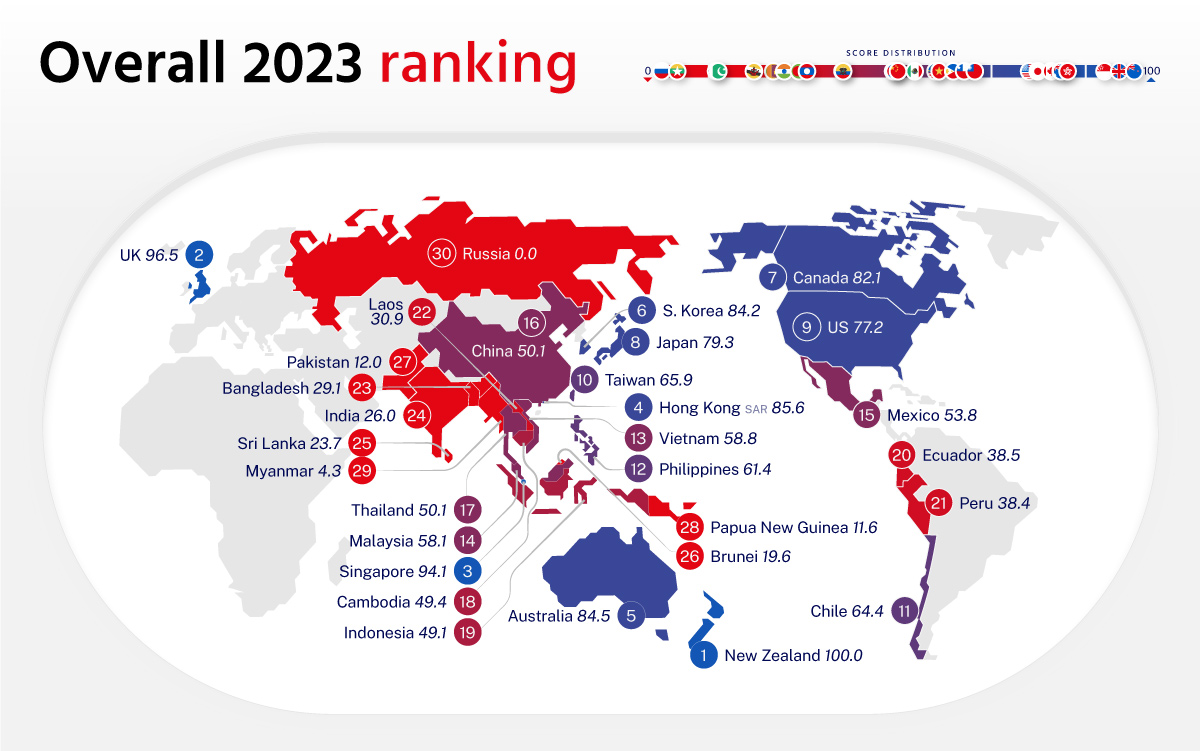
$ 5 m “PropteX” Program aims to support startups, innovation
Paragon Developments has teamed up with Adeer International, PMaestro alongside their German partner, QNTF, to ...

The Hinrich-IMD Sustainable Trade Index 2023 (STI) has unveiled the 30 most sustainable global economies on the basis of 71 economic, societal, and environmental indicators.
New Zealand and the United Kingdom maintain their top two positions in the overall ranking, as with the 2022 results. Singapore advanced two positions from last year into third place.
New Zealand’s achievement is the result of its robust performance in all pillars, ranking first in the environmental pillar, second in the societal pillar, and eighth in the economic pillar.
Top-ranking economies in the economic pillar exhibit robust infrastructure and a strong commitment to technological innovation, facilitated and supported by access to adequate financing. Economies where the private sector enjoys ample funding opportunities thrive. Leading the rankings in this pillar are Singapore, South Korea, Hong Kong, the United States, and the United Kingdom.
In the societal pillar, the STI emphasizes that political stability, higher economic equity, high educational attainment, and social mobility are key to top performance. Notable top performers in this category include Canada, New Zealand, Australia, the United Kingdom, and Japan.
In the environmental pillar, economies that uphold stringent environmental standards and effectively address critical issues like wastewater management, air pollution control, carbon emissions reduction, and energy efficiency are ranked at the top. Exemplary in this domain are New Zealand, the United Kingdom, Mexico, the Philippines, and Singapore.
Hong Kong came in the fourth place in the overall ranking of economies that participate effectively and sustainably in trade.
Australia ranked the fifth followed by South Korea, Canada, Japan, the US, Taiwan, Chile and Philippines.
Vietnam came in the 13th position, followed by Malaysia, Mexico, China, Thailand, Cambodia, Indonesia, Ecaudor, Peru and Laos.
Bangladesh ranked the 23rd followed by India, Sri Lanla, Brunei, Pakistan, Papua New Guinea, Myanmar, and Russia.
The Hinrich Foundation publishes the index because it believes that trade is essential to economic growth, but economies need to manage the social and environmental fallout from unsustainable trade practices to retain support for trade in their communities.
The Hinrich-IMD STI seeks to analyze the factors that affect the sustainability of trade in a rapidly shifting international order.
The index measures the readiness and capacity of a country to participate in the international trading system in a manner that supports the long-term domestic and global goals of economic growth, social capital development, and environmental protection.
The index provides a key resource for regulators, businesses, and communities to shape policies that integrate trade with the prosperity and sustainability of economies.
Paragon Developments has teamed up with Adeer International, PMaestro alongside their German partner, QNTF, to ...
Crédit Agricole Egypt Foundation for Development and Schneider Electric have successfully concluded the Second Phase ...
The European Commission (EC) has decided to register a European Citizens’ Initiative (ECI) entitled ‘Save ...


اترك تعليقا